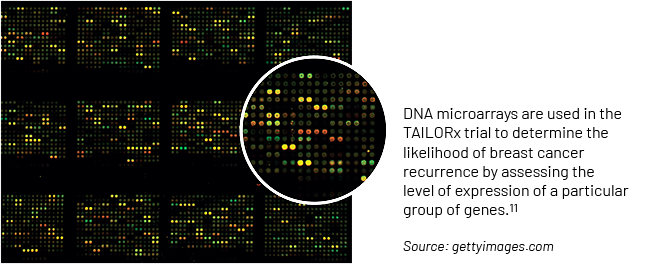-
Property & Casualty
Property & Casualty Overview

Property & Casualty
We offer a full range of reinsurance products and the expertise of our talented reinsurance team.
Expertise
Publication
High-Low Agreements Can Prevent Large Plaintiff Verdicts
Publication
Medical Marijuana and Workers’ Compensation
Publication
Secondary Peril Events Are Becoming “Primary.” How Should the Insurance Industry Respond?
Publication
Risks of Underinsurance in Property and Possible Regulation
Publication
Benefits of Generative Search: Unlocking Real-Time Knowledge Access
Publication
Battered Umbrella – A Market in Urgent Need of Fixing -
Life & Health
Life & Health Overview

Life & Health
We offer a full range of reinsurance products and the expertise of our talented reinsurance team.

Publication
Thinking Differently About Genetics and Insurance
Publication
Post-Acute Care: The Need for Integration
Publication
Trend Spotting on the Accelerated Underwriting Journey
Publication
Medicare Supplement Premium Rates – Looking to the Past and Planning for the Future U.S. Industry Events
U.S. Industry Events
Publication
The Future Impacts on Mortality [Video] -
Knowledge Center
Knowledge Center Overview

Knowledge Center
Our global experts share their insights on insurance industry topics.
Trending Topics -
About Us
About Us OverviewCorporate Information

Meet Gen Re
Gen Re delivers reinsurance solutions to the Life & Health and Property & Casualty insurance industries.
- Careers Careers
Thinking Differently About Genetics and Insurance

December 12, 2023
Dr. Loraine Oman-Ganes
,
Donna Michele
,
Dave Nicholas
English
Genetics is about all of us. The expression of every human disease is influenced by genetics. We have entered a remarkable new era where genomics technology has positively altered science, medicine, and society.
These medical advances involve global scientific collaboration and transformation of an unprecedented scale. While we have made great strides in understanding and treating human disease, many questions remain unanswered. Increasing knowledge has illustrated vast complexity and created challenges.
Insurers must be anticipatory, and evolve in the rapidly changing scientific, legal, and regulatory genomics landscape. They need to enhance their knowledge and value proposition, while critically analysing a sea of innovation opportunities where perceived impact may not align with reality.
Insurers will increase client confidence through enhanced transparency, communication, and continuous improvements while providing balanced risk assessments. The insurance industry’s unique opportunity is to create a lifelong impact for clients and their families, while supporting their journey at the time of greatest need.
Insurers face the challenge of navigating complexity in a rapidly evolving financial, geopolitical, and societal landscape. In parallel, they must also adapt to rapid changes in the global medical landscape due to the unprecedented pace of advances in genetics technology. Although our focus in this article is underwriting Life insurance in North America, the key messages apply globally.
Thinking differently – “REACH”
“Thinking differently” means: Reflect, Expand knowledge, Be Anticipatory, Challenge legacy approaches
- Reflect upon the current state
- Question the status quo
- Expand and apply knowledge: genomics technology is embedded into all areas of medicine
- Broaden the focus from rare hereditary conditions to common diseases
- Understand rapid growth, complexity, and public demand for genetic testing
- Be anticipatory, using a data-driven approach
- Increase awareness of risks, including legal, regulatory, and reputational
- Opportunities:
- Enhance client relationships through transparency, accessibility, and continuous improvement in an era of rapid transformation
- Adopt digital approaches
- Innovate strategically
- Challenge legacy approaches
- Leverage global knowledge-sharing and multidisciplinary collaboration
Expand knowledge – Genomics technology
Genomics technology is embedded into all areas of medicine. About 7,000 hereditary conditions exist which are individually rare, but collectively not uncommon. The original focus of human genetics research upon rare hereditary conditions has expanded greatly. Genomics is now integrated into all areas of medicine including common diseases such as cancer, heart disease and diabetes.
Technological advances in laboratory testing and computational biology have created rapid transformation, decreased cost and increased population access to genetic testing. However, challenges remain. Some of the greatest impact of genomics technology relates to cancer, where precision medicine customises risk assessment, diagnosis, prognosis, and treatment to the individual.
In the following, our focus is on actionable genetic tests, which have evidence-based medical value in disease prevention, diagnosis, risk stratification and treatment. Genetic tests differ from other medical tests as they are always optional.
Complexity – Rapid growth in genetic test numbers
The large degree of utilisation of genetic testing in the U. S. is illustrated by Concert Genetics’ payor data:
“Genetic testing is the linchpin of precision medicine, but the rapid pace of change in the market makes it enormously complex. Today, there are more than 140,000 unique genetic testing products on the market, and an average of 10 to 15 new products are added each day…”1,2
- The increasing demand for genetic testing is driven by healthcare providers and the public.
- The pattern of access to healthcare has changed. Today, the individual is the central focus of their own care, proactively investigating healthcare options including genetic testing. Healthcare providers partner with their patients to make informed, collaborative (shared) decisions, rather than directing decision-making, as in the past.3
- The public’s desire for independent decision-making has influenced growth of the direct-to-consumer (DTC) industry in genetic testing.
- Genetic testing, previously performed only for medical indication, can now be obtained for the individual’s personal interest (such as perceived health benefits).
- Perceived benefits of genetic testing (including whole genome sequencing/whole exome sequencing – WGS/WES) for the unselected population must be balanced with evidence of actionable benefit and risk.
- Polygenic risk scores currently have limited clinical utility.
The following data limitations in identifying genetic testing prevalence have been found:
- Challenges include, but are not limited to diverse data sources, data collation issues, and many payors (commercial, public, self‑pay).
- Research-based testing: data (including WGS/WES) is difficult to obtain. Some of these research-based test results are actionable and are communicated to the patient.
- DTC test data is difficult to obtain.
Uncertainty – What does the genetic test result mean?
The following relates to rare single gene hereditary conditions. Genetic tests for actionable findings seek “pathogenic variants” (previously called “mutations”). Genetic variants are classified along a spectrum, based upon specific laboratory parameters with evolving interpretation (see Figure 1). This broad spectrum of variation in interpretation is unusual in clinical medicine.
Figure 1: Searching for pathogenic variants

Increasing recognition of inconsistencies and inaccuracies in reporting have included misclassification of genetic variants as being pathogenic when they were not. In addition, genetics professionals may have challenges in interpreting genetic test results. Clinical sequelae for patients have included “incorrect diagnoses, unnecessary treatments … increased psychosocial stress on patients and their families and sometimes missed diagnoses, which may even lead to death …”4
Insurers need to review the source and date of genetic test reports (in addition to content) to interpret their potential relevance in underwriting.
Impact: For insurers, interpretation of genetic test results can be challenging. In underwriting, no action is required for the finding of a variant of unknown significance (VUS) unless the interpreting specialist (or report) indicates concern regarding the clinical context and need for further testing (see Figure 1). VUSs may be reclassified in the future, as our knowledge increases. Collaboration with internal partners such as medical directors will enhance the interpretation of genetic test results.
Market growth – Multiple, rapidly evolving applications
In many clinical situations, the pattern of testing has changed from sequencing individual genes to groups of genes (panels) relevant to the clinical concern as panel testing is more efficient and cost‑effective.
The market growth in genetic panel testing is illustrated by the Concert Genetics data (see Figure 2). In the year ending 1 March 2018, 801 new panels entered the market. This is a growth rate of 15 + per week. Figure 3 gives an example of an extensive cancer panel (Invitae).
Figure 2: Multi-gene panel testing – Market growth

Figure 3: Evolution of testing – Multi-cancer panels

This panel analyses 84 genes associated with hereditary cancers across major organ systems, including:
- Breast and gynaecological (breast, ovarian, uterine)
- Gastrointestinal (colorectal, gastric, pancreatic)
- Endocrine (thyroid, paraganglioma/pheochromocytoma, parathyroid, pituitary)
- Genitourinary (renal/urinary tract, prostate)
- Skin (melanoma, basal cell carcinoma)
- Brain/nervous system
- Sarcoma
- Haematological (myelodysplastic syndrome/leukaemia)
Pricing – Costs in clinical practice
Although technological advances have resulted in a striking decrease in cost of genome sequencing, these savings may not be transferred to the patient/consumer. It is helpful for insurers to understand that pricing of genetic tests is highly variable, and may represent a barrier to access.
Impact: Access needs to be considered during our risk assessments, including underwriting manual guidance which refers to genetic tests. The applicant may not have access to the test due to cost.
Additional costs including downstream consequences from genetic testing (such as medical evaluations and treatments) may create access issues and disparities. Pricing data for genetic tests is challenging to obtain. However, Concert Genetics’ 2022 Genetic Test Price Transparency Report provides valuable information regarding pricing trends, including variability.
Scope – Biomarkers and precision medicine
Genetic tests are now embedded into many areas of general medicine, as their use has broadened far beyond testing for rare hereditary conditions. Examples include biomarkers such as: JAK2 (used in evaluation of blood cancers called myeloproliferative neoplasms); HER2 (test performed in all breast cancers); cancer risk assessment tests (thyroid nodules, prostate issues); BCR‑ABL fusion protein (chronic myelogenous leukaemia/CML); and EGFR1 (the most common type of lung cancer called non-small cell lung cancer/NSCLC).
Precision medicine for cancer represents one of the most important applications of genetic testing. All cancer is genetic. Cancer classification is now multidimensional and dynamic, not limited to pathology, but based upon genotype and genetic biomarkers. Genomics has revealed that cancer is a group of diverse, complex, dynamic diseases, which explains the challenge of curing cancer.
- The promise of precision medicine is to identify therapies targeting the individual’s unique cancer based upon its genetic profile.
- Challenges include that not all cancers have molecular targets amenable to precision therapy, as well as cost, access to clinical trials, resistance to treatment, and focused use in advanced cancer.
- Current clinical utility is evolving and includes tests to assess cancer risk (see Box 1: thyroid nodule test), indication for specific treatment, and prognosis (see Box 2: early breast cancer), and response to treatment.
Impact: This will extend to our underwriting risk assessments and manuals, with adherence to applicable legal/regulatory issues. Our traditional approach for risk assessment using cancer pathological grading/staging will evolve into the multidimensional approach, integrating genetic testing and impact of new therapies. The prognosis of cancer will evolve and improve in some cases.
Box 1: A genetic test in general medicine prevents unnecessary thyroid surgery
- Thyroid nodules are common, and often incidentally discovered during medical imaging, and present in about 50% of the US population by age 60.
- When biopsied, indeterminate results occur in 25%.
- Previously, indeterminate results led to surgery (typically thyroid lobectomy), but 85 to 90% were benign.
A genetic test for indeterminate biopsy results provides molecular classification of cancer risk. This refined risk classification reduces the need for surgery.8
Box 2: Precision medicine for all women with early-stage breast cancer prevents unnecessary chemotherapy
For early-stage breast cancer (HER2-negative, node negative) genetic biomarker testing (on tumour tissue) determines whether chemotherapy is indicated (see Figure 4).9,10
Figure 4: DNA microarrays to determine the likelihood of breast cancer recurrence

Pharmacogenomics – A type of precision medicine
This important area has variable but evolving clinical use globally, despite current evidence basis for several medical applications.
- Genetic factors play a major role in variability in response to medications. Use of pharmacogenomic testing can optimise therapeutics including efficacy and limiting adverse drug reactions (ADRs).
- Some current applications include antidepressants and warfarin.
Impact: If these test results are identified during underwriting, they represent genetic tests but will not impact our risk analysis. Pharmacogenomic testing in applicants using psychiatric medications may help them optimise medication efficacy, while limiting adverse effects.
Underwriting – Assessing rare hereditary conditions
Over 7,000 rare hereditary conditions have been defined. Gene Reviews12 is an excellent resource for specific conditions, relevant genetic tests, and natural history.
Impact: In most cases, we do not need to obtain genetic test results, and can perform our risk assessment based upon the evidence on file. Requesting genetic test results may be misperceived as indicating that the genetic test is a requisite for insurability.
Hereditary cancer syndromes are one of the most common groups of hereditary conditions which underwriters encounter.
- Most family histories of cancer do not represent a hereditary cancer syndrome. Only 10% of cancer is hereditary. Consider “What is most likely?”
- The following clues suggest a hereditary cancer syndrome: family history of specific types of cancer with multiple affected individuals in more than one generation; young age at diagnosis; more than one primary cancer in an individual; male breast cancer; and specific cancer histories (see Box 3: no family history of concern).
- Diagnosis of a hereditary cancer syndrome is based upon genetic testing.
- Negative results of genetic testing may not add reassurance, and need to be assessed in context of several factors including:
- Who was tested and whether they had a cancer history
- Family history (beyond first-degree relatives)
- Knowledge of a family-specific pathogenic variant
Impact: In underwriting, risk analysis for hereditary cancer syndromes should focus upon the most common conditions associated with the greatest mortality impact. Examples include hereditary breast ovarian cancer syndromes and Lynch syndrome.
- Rationale: hereditary cancer syndromes are associated with increased mortality due to risk for multiple primary cancers in one or more than one organ.
- A long interval since original cancer diagnosis may not be reassuring.
- Legislation: in certain regions and markets genetic test results cannot be used in underwriting. For example, “The Right to be Forgotten” (RTBF, Europe) states that in their risk assessment, insurers may not use cancer histories beyond a defined period after completion of treatment without recurrence (see Underwriting Focus 2/2022).13
- Risk mitigants include evidence-based surveillance, risk-reducing surgery, and chemoprevention.
- Family history: a balanced, evidence-based use in risk assessment must be applied. In most jurisdictions, including those where insurers’ use of genetic testing is prohibited, the insurers’ use of family history is preserved.
Box 3: No family history of concern – Increased risk (of hereditary cancer syndrome)
Regardless of family history, genetic risk evaluation is indicated for:14,15,16
- Triple negative breast cancer (TNBC)
- Young age diagnosis breast cancer (age < 40)
- Epithelial ovarian cancer, fallopian tube cancer, peritoneal cancer
- Colorectal cancer
- Endometrial cancer
Be anticipatory – Data-driven approach
Risk assessment includes legal, regulatory, reputational risk with mitigants being:
- Processes, communication, transparency, tracking, quality reviews, training
- Underwriting manuals – Ongoing updates, evidence-based guidelines
- Claims-analysis of data, trends
Risks are associated with:
- Increasing use of limited or alternative data sources, accelerated underwriting
- DTC genetic testing
- Anti-selection
The risk goes along with the following opportunities:
- Employ best practices in underwriting, claims and risk management
- Digital approaches: automated underwriting
- Apply advanced genomics knowledge to diverse areas including mortality improvement research
- Innovate strategically
- Objectively assess rapidly evolving innovation opportunities
- Evaluate perceived versus actual value, and risk
Challenge legacy approaches
Insurers need to reflect upon their evidence basis for their current assessments and embrace continuous improvement. We can inspire and learn from open, collaborative ongoing dialogue with stakeholders, internally and externally. It is essential to leverage global knowledge-sharing and multidisciplinary collaboration.
Client focus – Transformation
How do insurers navigate client advocacy, risk assessment for rare medical conditions, genetics advances and legislation? How are they perceived by clients and the public? Insurers must convey knowledge, empathy, and openness to change.
A window into the journey of those with health differences is provided by the work of Rick Guidotti, a photographer and global thought-leader whose inspired work celebrates human difference. His work “Positive Exposure” and initiative “Change How You See, See How You Change” resonates broadly.16 If we shift our perspectives from divergence to problem-solving and commonality, the outcomes will reflect positive exposure and transformation.
For more information about Rick Guidotti’s work see: positiveexposure.org.
Download PDF version for Term Explainations, Endnotes, and Further Reading.






